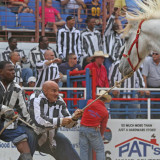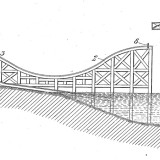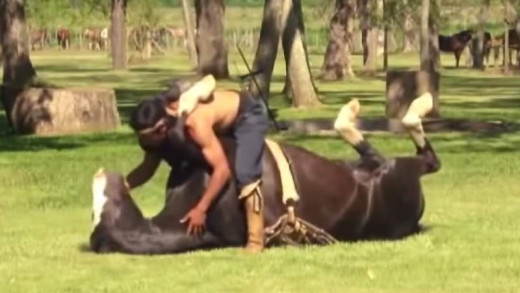5 classic game shows that used to have totally different, game-changing rules
The main appeal of a game show is its consistency. You can expect the same thing for days, weeks, and even years. But even though game show rules seem set in stone, these 5 game shows started with different rules that made for completely different games.
1. Jeopardy! used to be a speed reading competition
The different rule: Contestants could buzz in whenever they wanted.
Why it matters: It made reading speed the most important skill.
Those who don’t follow Jeopardy! might not realize that buzzer speed is the difference between a very smart winner and a very smart loser. Today, Alex reads a question and, when he’s finished, an off-stage producer presses a button. As soon as that button is pressed, contestants can buzz in. It makes Jeopardy! a buzzer speed contest. But it wasn’t always that way.
In the original version of the show, contestants could buzz in whenever they wanted. If a speed reader jerked ahead to the end of the question and buzzed in, they could lock in their position before the host was finished reading. In addition to being less pleasant to watch, this rule also made Jeopardy! a speed-reading competition rather than a test of knowledge and buzzer skills.
Fortunately, the rules changed for the benefit of viewers and contestants (and, probably, the host). We couldn’t track down when the change went into effect, however, because the old rules were still in place when Alex Trebek took over the hosting job in 1984.
Jeopardy! had another major rule change, too. Before 2003, contestants maxed out at five wins. The rule change allowed for long-running super-champs like Ken Jennings, Julia Collins, and Dave Madden.
2. The Price Is Right was harder to game
The different rule: There was a minimum bid.
Why it matters: Contestants couldn’t bid $1 as a strategic gambit.
It’s classic strategy for The Price is Right: bid $1 in the hopes that your opponents might overbid. If they do, you win, even if your guess is way off the real price. But the game wasn’t always that way.
In the original version of the game, which debuted on NBC in 1956, producers set a minimum bid. Granted, contestants could still try a low bid to beat their opponents, but the range was a lot smaller. The rule change means that modern Price is Right strategy is more complex and, in some ways, contrary to the price-guessing goal of the game.
3. Whose Line Is It Anyway was a radio show
The different rule: The gameplay was heard instead of seen.
Why it matters: Say goodbye to your favorite visual games from the classic TV series.
It’s a stretch to call Whose Line Is It Anyway a game show. After all, in the American version, the host even says it’s “the show where the points don’t matter.”
Still, Whose Line had dramatically different gameplay as a radio show, which is how it debuted on BBC Radio 4 in 1988. Considering how some of the TV show’s best moments come from visual games, it’s stunning to learn they were ever not a part of the show.
4. Wheel of Fortune and Pyramid were tournaments
The different rule: Instead of being a one-hit wonder, you could go on a game show streak.
Why it matters: Totals were bigger and the competition was more intense.
This is a two-for-one bonus, which should be familiar to game show fans. Both Wheel of Fortune and the various incarnations of the Pyramid game shows had multi-day champions.
Since 1998,Wheel has only allowed contestants to show up once, but that wasn’t always the case. In the original network version, great Wheel players could appear up to five days in a row. Later versions let them win for three days. 1970s Pyramid let players compete until they lost, which means there could have conceivably been a superstar like Ken Jennings on Jeopardy!.
5. Supermarket Sweep was a completely different game
Fans of the Lifetime version of Supermarket Sweep are familiar with weird mini-games and a fake set. The original 1965 version of the game was filmed in a real grocery and had gameplay closer to The Price is Right. Winners could also keep playing.
The Lifetime series also had many minor tweaks, ranging from limits on certain items to the way the gameplay was structured. Supermarket Sweep illustrates that many shows can change their format entirely and, if the brand name is strong, still manage to feel like the same classic show.













